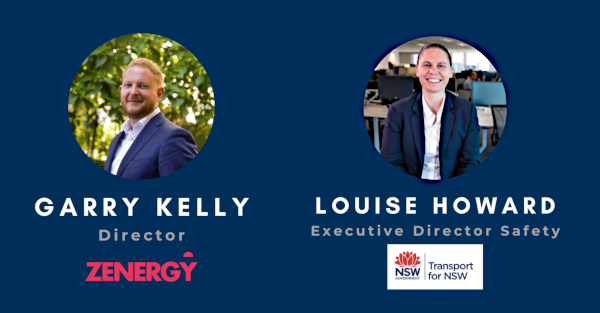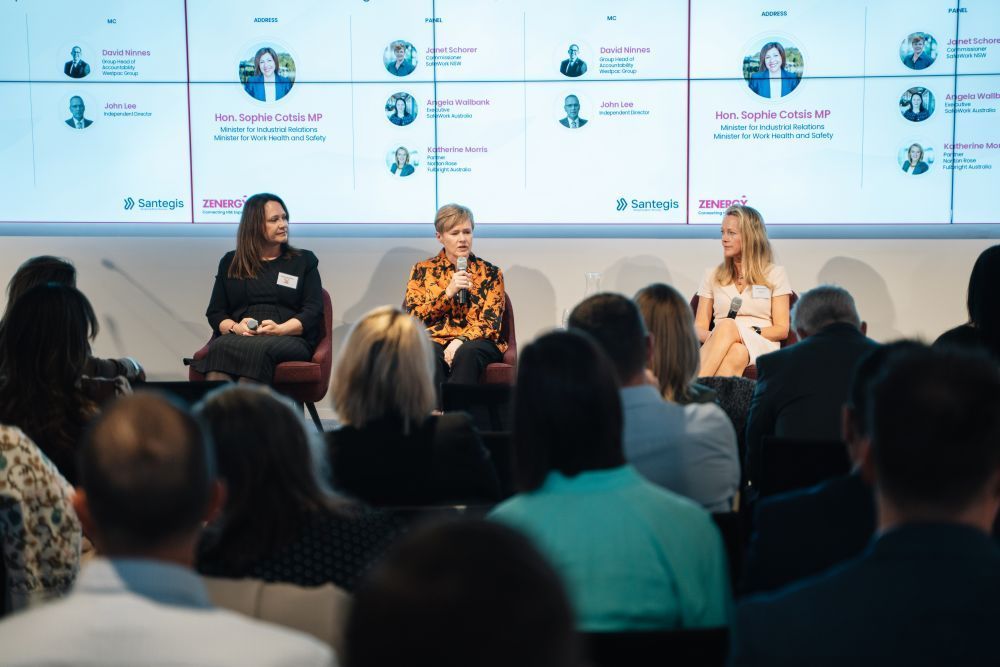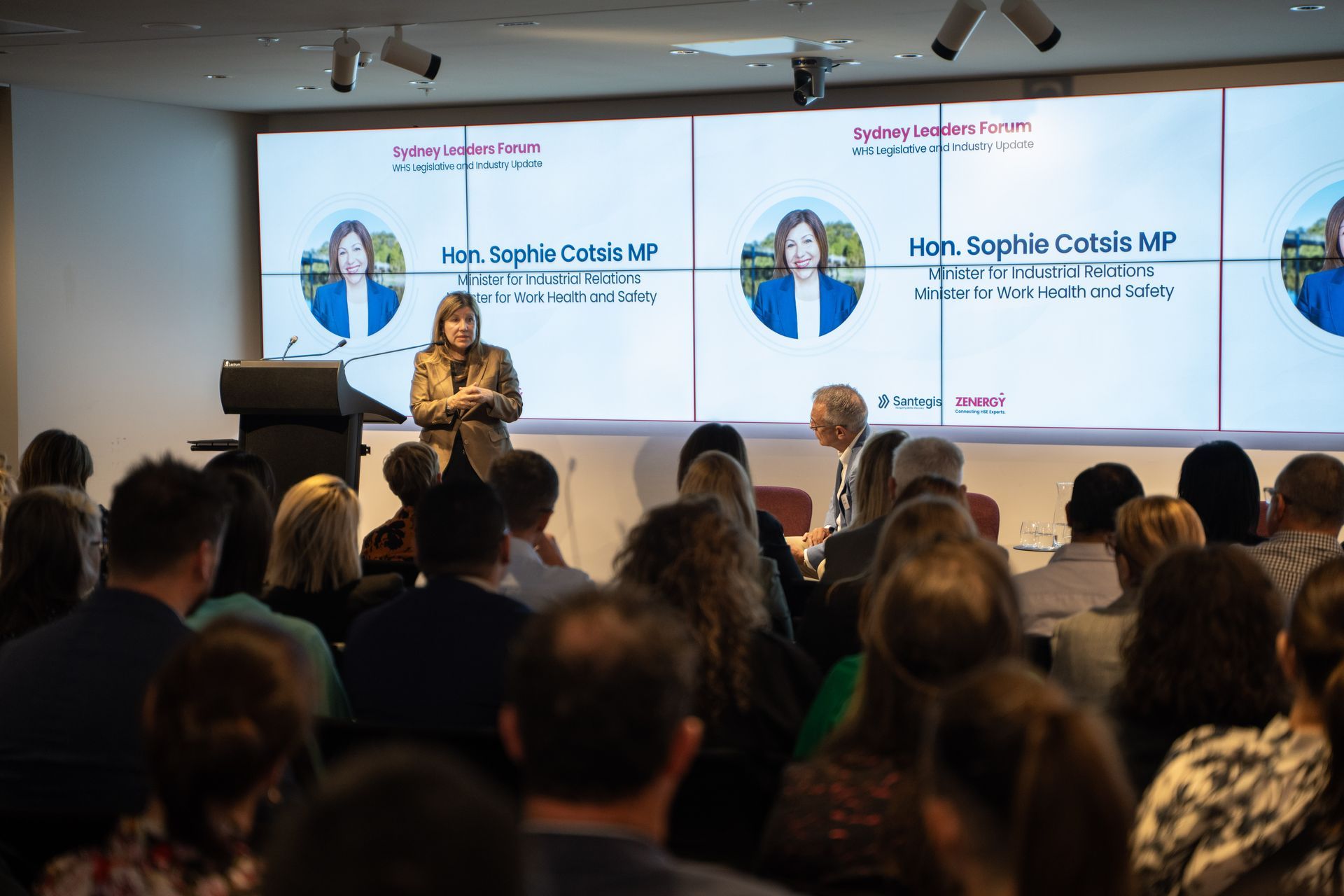Zenergy WHS Insight Series – Louise Howard, Transport for NSW
Interview with Louise Howard, Executive Director for Transport for NSW, by Garry Kelly

Louise is currently Executive Director Safety for Transport for NSW. This is a recent move for Louise commencing in Jan 2021, previous to this Louise was the Head of Health and Safety for Sydney Metro. Louise is known as a commercially focused and people orientated leader, where she has covered a diverse portfolio of industries representing leading brands in both the public and private sector. She has an eye for numbers and enjoys challenging the status quo. Louise is a strong advocate for diversity and inclusion and strives to empower and support people to unlock their full potential.
Louise, great to sit down today, it’s been a long overdue catch up and we appreciate you taking the time out to share your views with our readers. Especially given all that is going on these days and you are very much in demand! To get started, can you tell us a bit about last year?
2020 was a big year for me personally and for the organisations I represent. I was recognised by the Australian Financial Review by being named a BOSS Young Executive for 2020, and also won the Australian Workplace Health & Safety Awards Young Leader of the year. To round it off I was one of six finalists shortlisted for the NSW Premier’s Award and was approached to take up a new role as the Executive Director Safety for Transport for NSW, a role which I started a couple of weeks ago. It will be hard to top 2020, Garry! However the year has started off brightly and I’m looking forward to seeing what positive safety outcomes we can bring in for the people of NSW.
Industry Collaboration
In your role with Sydney Metro and now at TfNSW, would it be fair to say that it is very important that you collaborate with a variety for stakeholders and to some extent, the wider H&S industry?
Yes it definitely is. In my role with Sydney Metro, industry collaboration and engagement is key. Our projects are delivered by contractors who are our business partners and it is important that we support their growth and improvement in the work they do for us as a NSW Government agency. This will be carried through into my role at TfNSW.
I currently chair the NSW Construction WHS Working Group on Covid-19 and this has been a brilliant display from industry working highly collaboratively together, supporting one another and forging ahead keeping people employed during the COVID-19 pandemic in a healthy and safe manner. When industry and government work together anything is achievable and 2020 showed this across the construction sector.
‘Safety Agnostic’
Do you subscribe to or operate under a particular methodology when it comes to Safety?
Safety Theory is something interesting to safety professionals but nobody else really. I do not subscribe to any particular school of thought and I think each of the theories have played a role in the evolution of safety practice. I’d call myself ‘safety agnostic’ if anything and I really believe you need to meet an organisation at its current maturity level rather than simply implement a safety theory you believe to be useful. I do fundamentally think health and safety needs to be simple and accessible for all, too often H&S professionals over complicate things, focus on paper process to ‘arse cover’ and do not spend enough time on the risk profile and risk appetite of the organisation to determine where best to focus time, money and resource to provide successful support and achieve positive outcomes in health & safety.
Leadership Capability
What are the main capabilities required for successful safety leadership at all levels?
Having a whole of business view rather than just a safety ‘lens’ is really useful for H&S professionals, understand the commercial aspects of your organisation as this is the predominant driver in decision making. Being able to communicate and clearly articulate in a concise way a compelling vision for health and safety so you can influence your executive teams. This must be supported by a simple meaningful plan that is easily measured and can demonstrate performance improvement. People also need to see, touch and feel what good looks like in order for them to walk the path of improvement with you.
Always look outside your organisation, industry and sector for ideas on health and safety, I will guarantee what you are seeking to change, improve or implement has been done in another organisation before, there are very few surprises in safety!
2021 – A new role
TfNSW, $100bn + worth of projects and 25,000 people, can you explain to readers what TfNSW does?
Transport for NSW is the lead agency of the NSW Transport cluster. Our role is to lead the development of a safe, efficient, integrated transport system that keeps people and goods moving, connects communities and shapes the future of our cities, centres and regions. TfNSW has over 25,000 employees and engages multiple third parties to build, operate and maintain its integrated transport network.
We are responsible for strategy, planning, policy, regulation, funding allocation and other non-service delivery functions for all modes of transport in NSW including road, rail, ferry, light rail, point to point, regional air, cycling and walking.
Downtime
What do you like to do to switch off?
I enjoy a chilled out personal life with a few key interests and self-care activities to keep me healthy and happy. I prioritise a minimum of 8-9 hours of sleep each night, this ensures I am always full of energy for the people around me but I have enough time to restore my energy each day.
Prior to Covid-19 my husband and I would travel extensively, we both follow the Formula 1 racing circuit which normally guides some of our travel plans. Travel is really an opportunity to switch off and refresh myself and calm my brain for an extended period of time. 6-8 weeks a year would be my target to travel globally, the travel planning was also a welcome distraction from work.
The other item which is really important for me is family, sharing meals together with my parents and siblings, helping out with my nephews and being available to them when they need it most.






